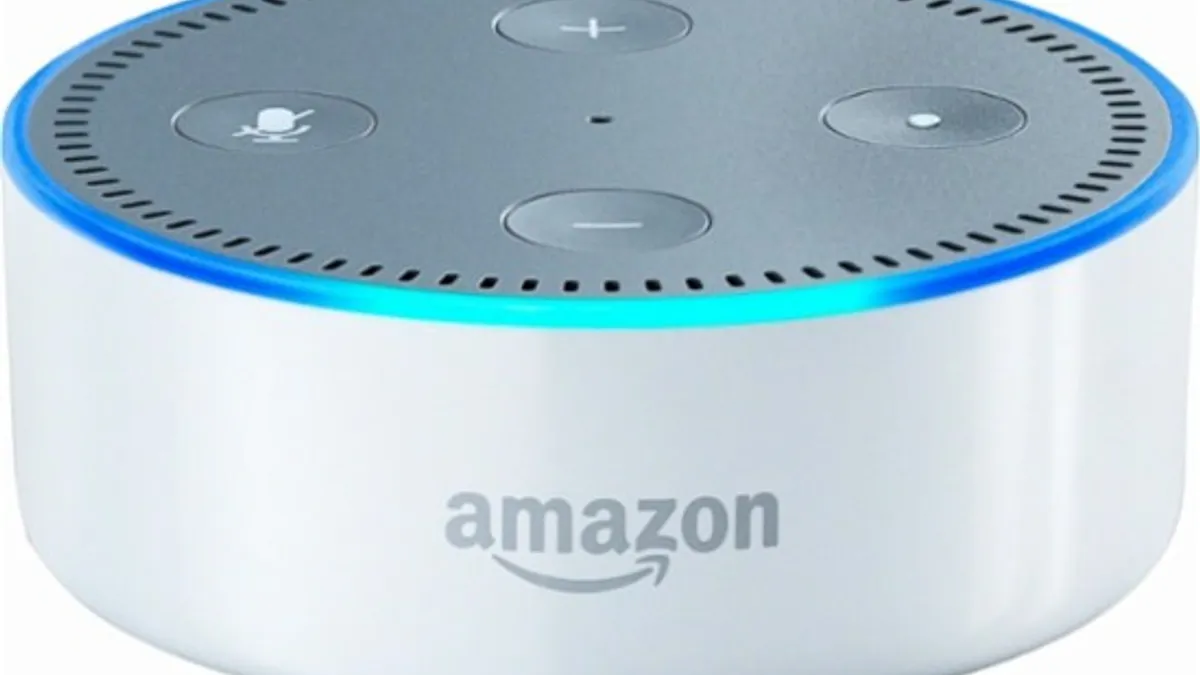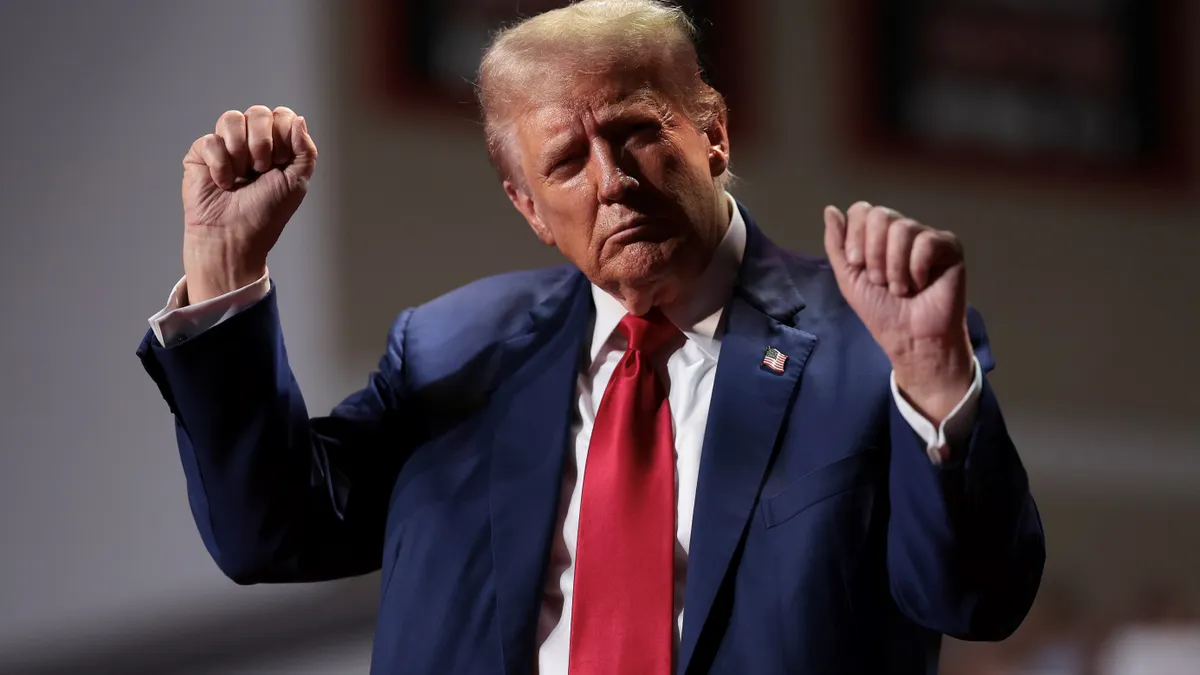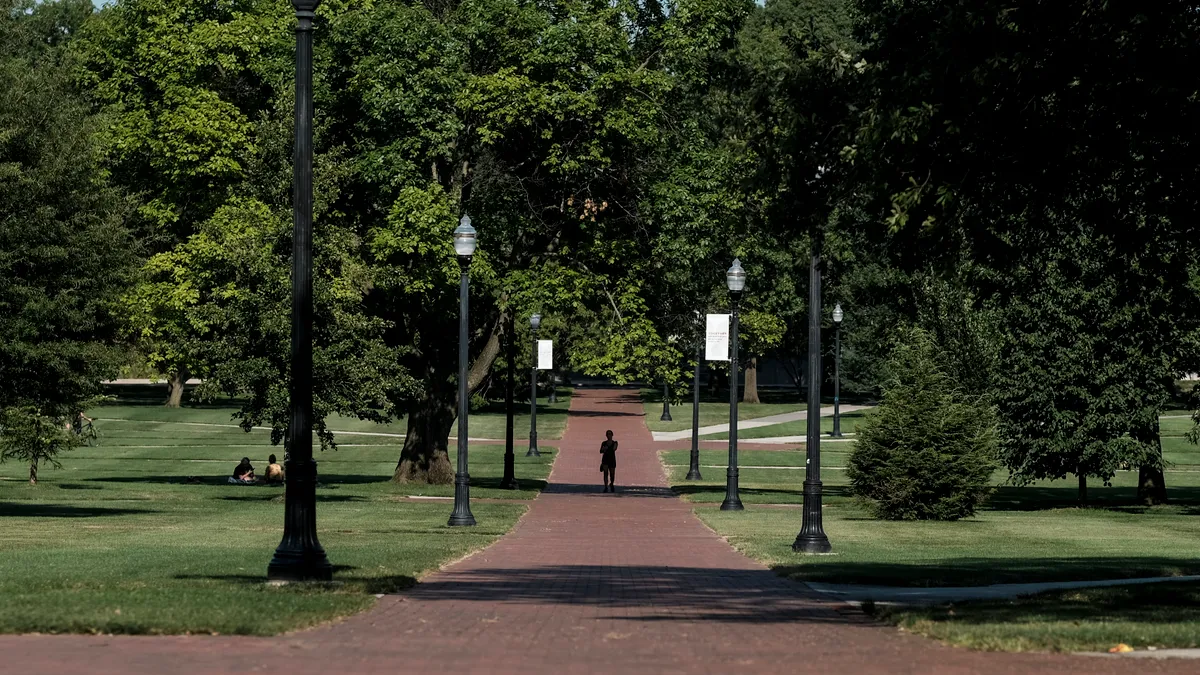Dive Brief:
- The Georgia Institute of Technology, Northeastern University and Arizona State University provided students with Echo Dots, the mini version of Amazon Alexa during the 2017-2018 academic year. The Chronicle of Higher Education reports that the voice-activated device was set up to answer questions specific to students, including business hours for campus buildings and cafeteria menu plan options.
- Sixty of the Echo Dots were installed at Northeastern this past spring semester. The devices were programed by n-Powered, a Boston-based technology start-up, to offer more personalized information on topics including financial aid and grades.
- At Arizona State, 1,600 students in the engineering school residence hall were offered Alexa devices last school year. The devices were programed to respond to basic questions such as playing the university’s fight song or giving a description of upcoming campus events. John Rome, Arizona State’s deputy chief information officer, said that students were encouraged to integrate Alexa into their daily routine.
Dive Insight:
A number of colleges and universities are researching the benefits of virtual personal assistant apps and devices for students, faculty members and staff. McGill University in Montreal implemented a student app called Oohlala. Ollivier Dyens, deputy provost for McGill, said the app delivers information to baseline campus features including events, maps, tours, a directory and more. What makes Oohlala different from other apps is that it also focuses on student engagement, Dyens said.
Texas A&M University in Galveston also is using Oohlala. Shelly Fordyce, director of student activities,said she was surprised to see students use the Oohlala app to form relationships with one another before the start of the acedemic year. And Joe Hoff, associate director for recreational sports, said he saw the most value in how the app supported new students, who often struggle with time management.
Higher education software company, Ellucian, surveyed 1,000 college students and found that while they enjoy using personal assistant apps and devices, students would appreciate a more personalized experience. Students want to see more data-driven information in the areas of career preparation, tuition and financial aid, course registration and grade tracking and housing and student organizations.
Over time, as Alexa and other virtual personal assistant devises is able to answer more sophisticated questions, campus technology officials will be faced with figuring out how to protect student privacy.
features.








